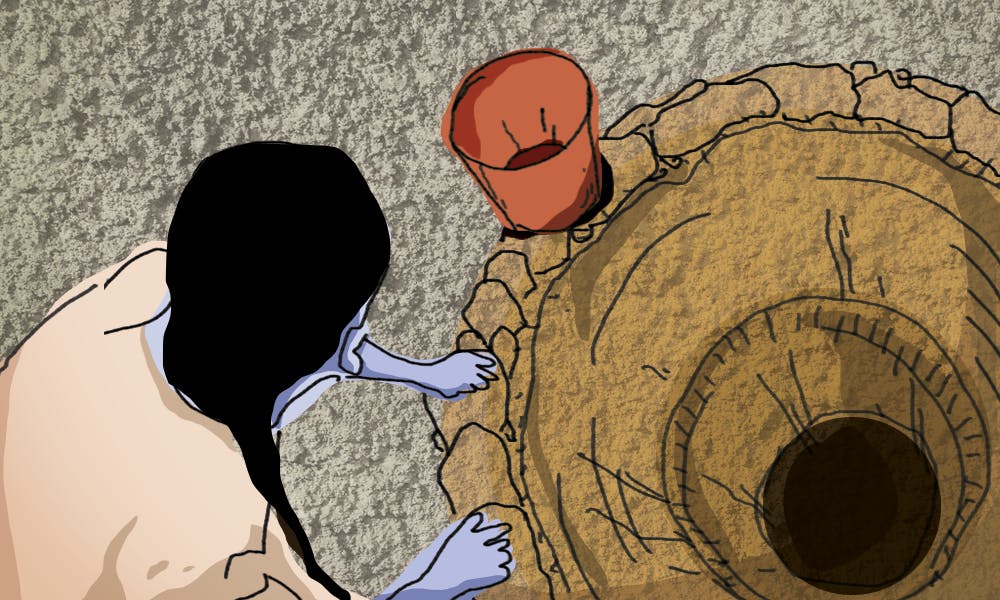Sometimes, I think each of us has a limited well of passion, which lasts as long as we know how to use it. Some of us are wiser — we conserve it. We trickle it, filter it, run it through some sort of recycling system so the well will never dry, accrue a surplus which only becomes purer the older we get.
And some of us use it all at once. We gulp it up, let it splosh in our stomachs until we can’t breathe, pee it out in one brilliant stream which dies as quickly as it started, leaving us with only an unpleasant stench and a feeling of emptiness.
Lately, I’ve been wondering whether my well has run dry. Writing, which I used to love, has become something I hate.
This turmoil exploded over something as superficial as an award. My friend and I had both submitted some writing to a competition to win some money and a title. I figured I had it in the bag. My friend, who studies business, isn’t a prolific writer. In fact, she confessed herself that writing was merely her hobby. And I, arrogant as I was, a self-professed “wri-TEUR,” twirling my invisible handlebar moustache and mentally murmuring all the French I knew, assumed naturally I would win.
To my chagrin, as karma and the universe and the Furies who punish all with too much hubris would have it, my friend won. She hadn’t hoped for anything, had entered her writing for sheer amusement, and she had won. When she told me, I tried my hardest to smile for her, but I was distraught.
It wasn’t as if I didn’t want her to win. But in my pride, I thought I deserved to win more. As if somehow, because I was louder about my love of writing, I had been worthier of the award. As if recognition is given based on desire, not talent.
I thought to myself, “Why do I write if no one will recognize how good I am?” I grew bitter. My bitterness had long been germinating in my stomach, fed by envy and the excesses of dinner.
Even before my friend had won the award, I had resented writing. The power of having this column, having a voice which people listened to, was going to my head. Whereas I started out writing for myself and others, to assuage my fears and any of those like me, I now wrote to obtain reads, numbers, hits on my column. I wanted to be acknowledged. My love for writing was distorted into a greed for success, which in turn degenerated into a hatred of writing, because it could not give me the recognition I so craved.
SEE MORE FROM AMY CHAN:

A lot of us experience this phenomenon when we enter college. We set foot on campus, naive dreamers with nothing in hand but an ideal and a passion. And each time we fail, or each time we succeed, we are taught that what really matters is not how much we wanted something, or how beautiful the thing we wanted was, but how effectively we could take what it was that we wanted. We are taught that ideals do not matter if we cannot translate them into numerical, material success. We grow cynical, detached from our dreams.
How, then, are we supposed to rediscover our original passion? What do we do when something we love becomes something we hate?
The simple answer would be that we forget everything else, let the sheer joy of doing what we originally loved be enough. But that would require a near-pathological ignoring of the world around us. The truth, as unpleasant as it sounds, is that recognition in some form does matter. There has to be a need for our work for it to be useful.
So, the real answer is, we wait. In waiting, we can step back from doing the thing we love — attaching less personal value to it. Or we can stop doing it completely — finding other interests to complement our main passion.
Because, when something we love becomes something we hate, what we really need is space. Separated from the thing we love, we’ll find what it was that called us to it in the first place, and the newfound appreciation of old passion will overshadow the allure of success. Because if we ever truly loved something, we can and probably will love it again.

AMY CHAN is a College senior from Augusta, Ga., studying classics. Her email address is chanamy@sas.upenn.edu. "Chances Are" usually appears every other Sunday.



